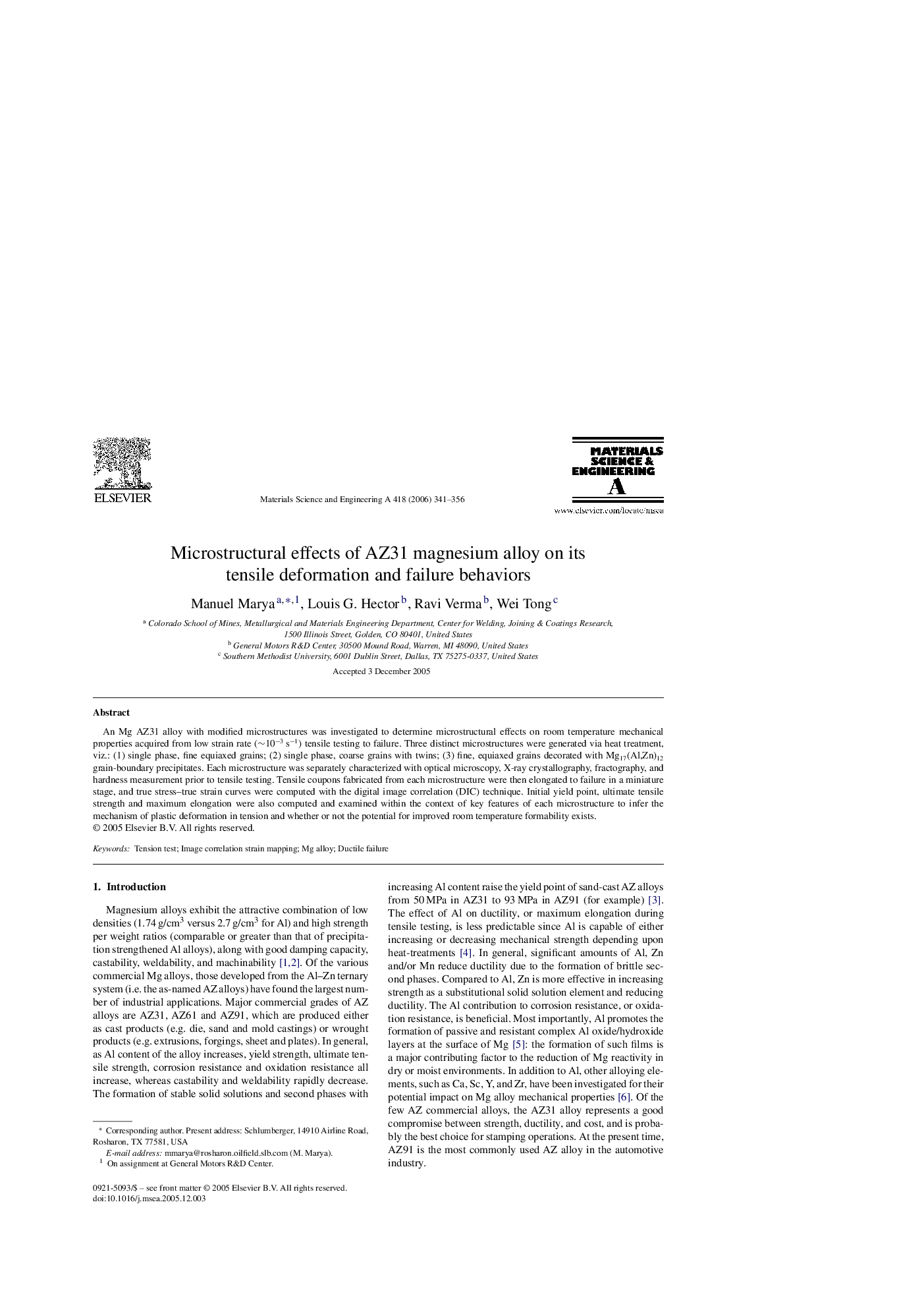| Article ID | Journal | Published Year | Pages | File Type |
|---|---|---|---|---|
| 1586049 | Materials Science and Engineering: A | 2006 | 16 Pages |
Abstract
An Mg AZ31 alloy with modified microstructures was investigated to determine microstructural effects on room temperature mechanical properties acquired from low strain rate (â¼10â3Â sâ1) tensile testing to failure. Three distinct microstructures were generated via heat treatment, viz.: (1) single phase, fine equiaxed grains; (2) single phase, coarse grains with twins; (3) fine, equiaxed grains decorated with Mg17(Al,Zn)12 grain-boundary precipitates. Each microstructure was separately characterized with optical microscopy, X-ray crystallography, fractography, and hardness measurement prior to tensile testing. Tensile coupons fabricated from each microstructure were then elongated to failure in a miniature stage, and true stress-true strain curves were computed with the digital image correlation (DIC) technique. Initial yield point, ultimate tensile strength and maximum elongation were also computed and examined within the context of key features of each microstructure to infer the mechanism of plastic deformation in tension and whether or not the potential for improved room temperature formability exists.
Related Topics
Physical Sciences and Engineering
Materials Science
Materials Science (General)
Authors
Manuel Marya, Louis G. Hector, Ravi Verma, Wei Tong,
